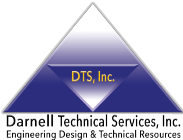Engineering is often viewed as a purely technical domain, requiring mastery of mathematics, physics, and technology to solve complex problems. While technical expertise remains indispensable, the importance of soft skills in driving engineering success cannot be overstated. Today’s engineering leaders recognize that effective communication, adaptability, and collaboration are just as critical as technical competence, if not more so. By balancing these two skill sets, engineers can deliver higher-quality results, foster innovation, and create more cohesive teams.
Why Soft Skills Matter in Technical Roles
Historically, engineers were valued solely for their technical acumen. However, the dynamics of modern engineering projects necessitate interaction across diverse teams and disciplines, making soft skills essential. Engineers must often explain complex concepts to non-technical stakeholders, collaborate with cross-functional teams, and adapt to shifting project requirements. Without soft skills, even the most technically proficient professionals may struggle to drive projects forward or build the trust and alignment needed for project success.
Soft skills also contribute to an engineer’s ability to manage stress and resolve conflicts. Engineering projects frequently involve tight deadlines, budget constraints, and unforeseen challenges. Professionals with strong emotional intelligence and problem-solving capabilities can maintain focus, communicate effectively under pressure, and find solutions that benefit the broader team. Simply put, soft skills are the glue that connects technical expertise to operational and organizational success.
Key Soft Skills Every Engineer Should Develop
To thrive in today’s complex technical landscape, engineers should prioritize the development of the following soft skills:
1. Communication
Clear and concise communication is vital. Whether presenting technical data to executives or collaborating with team members, engineers must tailor their message to the audience. Effective communication includes both verbal and written skills, ensuring that ideas are conveyed with precision and confidence.
2. Adaptability
Engineering often involves unexpected challenges such as evolving project scopes, new technologies, or shifting client needs. Engineers who adapt quickly can pivot strategies, learn new tools, and contribute meaningfully under changing conditions.
3. Teamwork
Engineering rarely happens in isolation. Whether working within your immediate team or collaborating across departments, the ability to function as part of a cohesive unit is key to achieving project goals. Teamwork also includes active listening, valuing diverse perspectives, and contributing to group problem-solving processes.
4. Leadership
Leadership is not restricted to management roles; all engineers have opportunities to inspire and guide others. Leadership involves taking initiative, supporting colleagues, and helping drive projects toward successful outcomes. Strong leadership fosters trust and motivates teams to perform at their best.
5. Problem-Solving and Emotional Intelligence
Beyond technical problem-solving, engineers benefit greatly from emotional intelligence—the ability to understand and manage one’s emotions while empathizing with others. This enables them to handle conflicts tactfully, maintain professional relationships, and support a positive team atmosphere.
Real-World Examples of Soft Skills Impacting Project Outcomes
Soft skills play a significant role in overcoming real-world engineering challenges. For instance, a project manager leading a major infrastructure development might rely on communication and leadership skills to secure stakeholder buy-in for a revised project timeline. Similarly, a software engineer adapting to a sudden change in programming language requirements demonstrates adaptability and teamwork by quickly learning new methods and sharing knowledge with colleagues.
Underperforming projects are often attributed to issues like poor communication or lack of collaboration—issues that could have been mitigated with stronger soft skills. Engineers with well-rounded competencies consistently add value beyond their job descriptions, elevating both individual and team performance.
How Companies Can Assess and Foster Soft Skills in Their Teams
Organizations that prioritize soft skills development in their engineering teams gain a competitive advantage. To assess these capabilities during the hiring process, companies can incorporate behavioral interview questions and situational exercises. For example, asking candidates how they handled past conflicts or navigated ambiguous situations provides insights into their interpersonal effectiveness.
To cultivate soft skills in existing teams, companies should offer professional development opportunities such as workshops, coaching sessions, or team-building exercises. Encouraging mentorship programs within the organization is another way to foster leadership and collaboration. By integrating these efforts into workplace culture, engineering firms can create a workforce that excels in both technical and interpersonal domains.
Balancing Technical Proficiency with Interpersonal Effectiveness
Striking the right balance between technical expertise and soft skills is crucial for engineering professionals at every level. Organizations should remember that technical training alone cannot guarantee project success—nor can strong interpersonal skills compensate for insufficient technical knowledge. Instead, these skill sets should be seen as complementary forces that, when combined, unlock an engineer’s full potential.
From building trust with stakeholders to fostering collaboration across multi-disciplinary teams, engineers with strong soft skills are equipped to approach technical challenges with creativity and strategic insight. By recognizing the value of these abilities and prioritizing their development, companies and professionals alike can drive outstanding results in an increasingly complex world.
Looking for Trusted Technical Talent or Project Support?
At Darnell Technical Services, we connect companies with skilled professionals in engineering, architecture, and infrastructure. Whether you need temporary staffing or long-term project support, we’re here to help you succeed.
📞 Contact us today at Corporate (714) 285-0082 or Las Vegas Office (702) 829-8446 — let’s build something great together.








